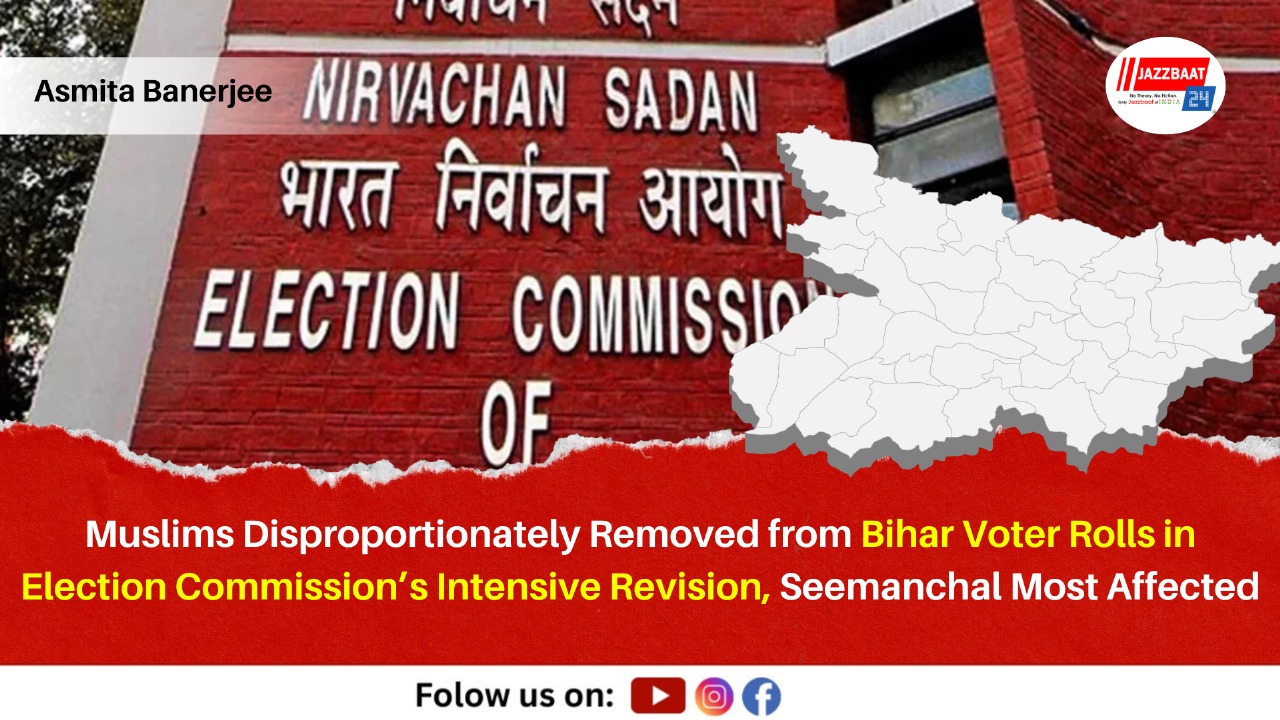A recent "special intensive revision" (SIR) of Bihar’s electoral rolls conducted by the Election Commission of India from June to September 2025 has resulted in voters with Muslim-sounding names being struck off the lists at a significantly higher rate than non-Muslims, according to a detailed analysis of constituency data.
While Muslims made up 24.7 percent of the 6.57 million voters initially flagged for verification, they accounted for 32.1 percent of the 323,000 confirmed deletions after ground-level scrutiny. This disparity is even more pronounced in the Seemanchal region, where both the number and percentage of Muslim voters excluded exceed those in other districts.
The deletion rate (the likelihood of removal once flagged) was 6.38 percent for Muslims compared to 4.18 percent for non-Muslims, meaning Muslim voters faced over 50 percent higher odds of exclusion after scrutiny. The analysis shows concentrated impact in Seemanchal’s districts such as Kishanganj, where the deletion rate for flagged Muslim voters was nearly double that of non-Muslims.
In four constituencies, Araria, Sikta, Katihar, and Jokihat, a combined total of over 14,000 Muslim voters were removed. This disproportionate exclusion cannot be explained simply by demographic factors, raising concerns over the fairness and equitable implementation of the revision process.
The Election Commission had described the SIR exercise as a "grand success," involving all major political parties and over 160,000 Booth Level Agents. However, critics now question how a process meant to safeguard electoral integrity led to markedly higher disenfranchisement of a minority community in specific areas.
This development has intensified debates ahead of Bihar’s upcoming assembly elections, with the Seemanchal region’s Muslim population playing a pivotal political role. The onus is now on the Election Commission to transparently address these significant disparities and ensure that no eligible voter is unjustly excluded.
The Election Commission’s handling of the revision and its impact on the electoral rolls remain under close scrutiny as political and civil society actors call for accountability and corrective measures.
